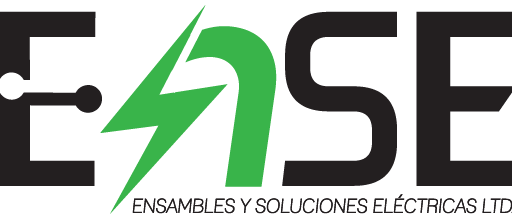Content

Prepare the journal entry to record the payroll tax expense. Which of the following payroll taxes are usually filled and remitted annually? Keep in mind that income and unemployment taxes are not technically payroll taxes. Gross taxable wages describes the money your employee earns that is subject to income tax withholding and/or FICA tax. Taxable wages do not include non-taxable income or pre-tax deductions, such as expense reimbursements or Section 125 health insurance deductions. When you think of payroll taxes, you might think of all taxes you withhold from your employees’ paychecks. However, payroll taxes are just one type of employment tax.
Employer Payroll Taxes: A Guide for Small Businesses – The Motley Fool
Employer Payroll Taxes: A Guide for Small Businesses.
Posted: Wed, 18 May 2022 07:00:00 GMT [source]
Payroll taxes are classified into three types—Social Security, Medicare, and Federal Unemployment taxes. If you are self-employed, pay the entire cost of payroll taxes (aka self-employment taxes). And, pay the additional 0.9% Medicare tax, too, if you earn more than the threshold per year. Though the business still remits payments for both employer- and employee-paid payroll taxes, you should look at the origin of the money differently. Payroll taxes aren’t to be ignored when deciding whether to hire a new employee. While employees have taxes taken out of their paychecks, there are other payroll taxes that only the business is responsible for paying. Unlike most salaried workers, self-employed people don’t have employers to remit payroll taxes on their behalf.
How to calculate federal income tax withholding using the Wage Bracket Method
There is no definitive answer to the question of what expense category is best for payroll taxes. It will depend on the specific business and their accounting https://www.bookstime.com/ practices. However, some common expense categories for payroll taxes include operating expenses, administrative expenses, and other expenses.
Businesses subject to the payroll expense tax are required to maintain and keep complete and adequate records. Records must be kept in such a manner as to enable the tax administrator to determine the payroll expense tax liability of the taxpayer. Most states and some cities and counties impose income taxes as well, and these amounts are paid directly to their coffers. In addition, employers, but not employees, also pay federal unemployment what is payroll expense taxes for each of their employees. Every employer in the United States must withhold payroll taxes from employees and submit these withholdings to the IRS, along with their own tax payments. The payroll tax expenses are considered liabilities until the deadlines to transfer funds to federal, state, and local agencies are met. The $7 million exemption threshold is based on the prior year’s compensation paid to Seattle employees.
Use Gross Pay and Deductions to Calculate Net Pay
The former editor of Consumer Reports, she is an expert in credit and debt, retirement planning, home ownership, employment issues, and insurance. She is a graduate of Bryn Mawr College (A.B., history) and has an MFA in creative nonfiction from Bennington College.
Every time you run payroll, there will be expenses a business owes but has not paid. These are called payroll liabilities and can include employee compensation , taxes withheld, expenses , and other payroll-related costs. Most items do not remain a payroll liability for very long. Every employer must withhold payroll taxes from employees and submit these withholdings to the IRS along with their own tax payments. But you don’t automatically transfer the taxes to the IRS when you withhold these funds. Payroll taxes are considered liabilities until your deadline to transfer funds to federal, state, and local agencies. Along with employee wages, an employer’s payroll liabilities include payroll taxes, voluntary employee deductions and payroll service costs.
Want to Learn More About Payroll?
These can include health insurance and life insurance premiums. Any contribution to health plans is a payroll liability. The remainder of the premium is deducted from pretax pay. The first, and most obvious payroll liability is employee wages. Staff can receive funds daily, weekly, monthly, or at any set time you agree upon.
What Makes Up Payroll Taxes?
Payroll taxes include all of the taxes on an individual’s salary, wage, bonus, commission, and tips. These taxes are used to pay for Social Security, Medicare, unemployment, government programs, and local infrastructure.
Payroll Taxes include unemployment charges, social security and medicare taxes. Payroll expense means compensation paid in Seattle to employees. Compensation has the same meaning for purposes of the payroll expense tax as it does for the Washington State Family and Medical Leave program. Compensation includes all payments for personal services, including commissions and bonuses and the cash value of all earnings paid in any medium other than cash. The payroll expense tax is a tax on employers that have Seattle annual payroll expense of $7,386,494 or more.
You may also see a higher rate of employee turnover if there are continuous issues with payroll. The payroll tax is the indirect tax imposed by the State or Federal Government for special programs like Medicare and Social Security. It is paid by the employers on behalf of the employees.
Does Everyone Pay a Payroll Tax?
Yes, for the most part, everyone pays a payroll tax, which is automatically deducted from one’s paycheck. The Social Security and Medicare taxes are regressive (everyone pays the same amount), while income tax is progressive (those that make more are taxed at a higher rate).

